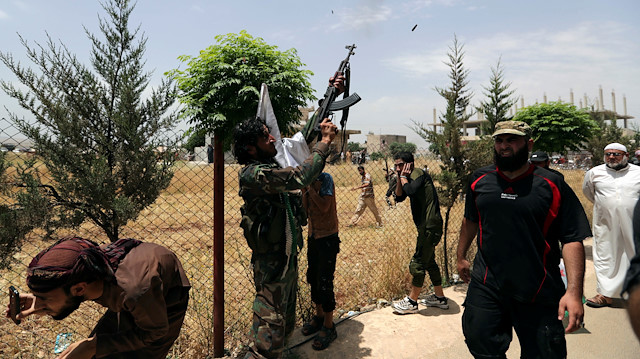
Once it is provided, displaced Syrians will be able to return home, says Russia’s foreign minister
Implementation of the Russian-Turkish memorandum on Idlib will ease the life of the citizens in the war-weary Syrian region, the head of Russian diplomacy said on Tuesday.
In September 2018, Turkey and Russia agreed to turn Idlib into a de-militarized zone after a meeting between Turkish President Recep Tayyip Erdogan and his counterpart Vladimir Putin in Russia's coastal city of Sochi.
Ankara and Moscow signed a memorandum of understanding calling for the stabilization of the situation in Idlib's de-escalation zone, in which acts of aggression are prohibited.
Russia’s Foreign Minister Sergey Lavrov told Anadolu Agency that once Turkey separated the armed opposition and the terrorist groups in Idlib, the civilians will be able to regain the normalcy in the daily life.
"Our Turkish friends have taken on the task of ensuring such separation. As soon as it happens -- which will mean that the conversation with the terrorists should be very short -- the fate of two million civilians will be eased and they can live in peace,” Lavrov said.
“Those who are displaced will be able to return to their places of permanent residence," he added when asked about the possibility of a new wave of refugees from Syria to Turkey.
Lavrov called Syrians and armed opposition in Idlib "hostages" of the terrorist group al-Nusra Front -- which is currently operating under the name of Hay'at Tahrir al-Sham.
"The solution to this issue is to fully implement the Sochi memorandum to unblock the deadlock in the Idlib de-escalation zone by separating the armed opposition from these bandits, from terrorist structures recognized as such by the UN security Council," Lavrov added.
The al-Nusra Front -- established in Syria -- has been classified by Turkey as a terrorist organization since 2014.
"At the same time, our Turkish friends, as we know, are actively working to fulfill their obligations under the Sochi memorandum, their commitments to separate the opposition, which is ready to participate in the constitutional process, from the bandits, who do not and cannot go by definition to any agreements and with whom we need to talk as terrorists," he said.
Syria has been locked in a vicious civil war since early 2011, when the Bashar al-Assad regime cracked down on pro-democracy protests with unexpected ferocity.
Since then, hundreds of thousands of people have been killed and more than 10 million others displaced, according to UN officials.
Hello, the comments you share on our site are a valuable resource for other users. Please respect other users and different opinions. Do not use rude, offensive, derogatory, or discriminatory language.
The floor is all yours.








